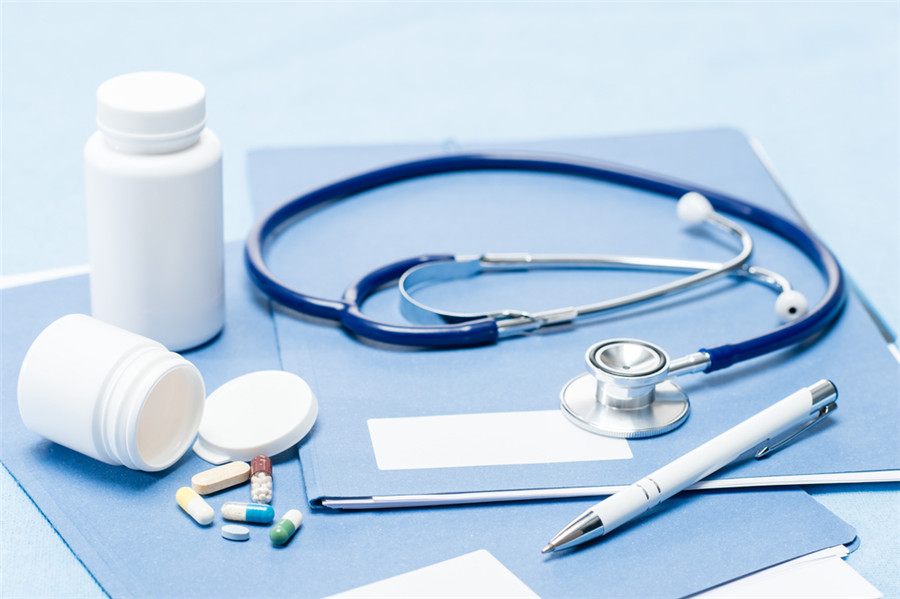
Have you ever had any pain in the right upper abdomen and below the right rib?
The Department of Digestive Internal Medicine often receives patients hospitalized with abdominal pain caused by cholecystitis and cholecystolithiasis, some of whom need surgical treatment. However, when they hear that the bile is to be cut off, some people begin to panic and have various problems…
Question 1: Will you become daring after removing the gallbladder?
In traditional culture, gallbladder is often related to courage, courage, will and manliness. In Chinese cognition, gallbladder is important, and removal of gallbladder will turn into [gallbladder-free rats].
In fact, this view is not correct.
Gallbladder is only an important organ of human digestive system. It is located in the right upper abdomen and the lower edge of the liver. It is attached to the gallbladder fossa of the liver and communicates with the common bile duct by means of the gallbladder duct. Its main physiological function is to concentrate and store bile, which plays a role in promoting fat digestion and absorption.
Gallbladder has nothing to do with human character, behavior, psychology, courage, etc.
Cholecystectomy will not affect a person’s character and courage, nor will it weaken a person’s courage, will and manliness.
Question 2: Should all inflamed gallbladder be cut off?
In fact, many simple cholecystitis and asymptomatic cholecystolithiasis do not require cholecystectomy.
Which gallbladder should be cut off?
- When cholecystolithiasis is complicated with acute attack of cholecystitis, such as serious illness, poor drug treatment effect, there is the possibility of repeated attacks; Gallbladder rupture after trauma; A hole in the gallbladder caused by other diseases.
There are some gallstones that do not have to be cut:
- Cholecystolithiasis complicated with chronic cholecystitis is recommended for surgery. When the gallbladder wall is thickened and gallbladder cancer is required to be on guard, surgery is recommended.
A simple understanding is that gallbladder that cannot be cured by internal medicine, cannot be cured by medication, has ruptured fistula, and has the possibility of canceration needs to be removed.
Question 3: Will dyspepsia occur after cholecystectomy?
The body can adapt to cholecystectomy, but in the short term, dyspepsia does occur.
The liver secretes bile 24 hours a day. Bile is sent to the gallbladder through the liver duct and bile duct and concentrated at the gallbladder. When people eat, the concentrated bile is squeezed out at one time and enters the duodenum through the common bile duct to help digestive enzymes digest food.
After the gallbladder is removed, bile lacks storage and concentration. With the secretion of the liver, it is continuously discharged into the intestinal tract to participate in digestive function. When the fat content eaten is high, the fat cannot be completely digested, and abdominal distension, stomach distension, stomachache, diarrhea and thick stool are easy to occur.
However, 6 months to 1 year after cholecystectomy, the digestive function of fat can be improved through bile duct adaptation and gastroduodenal activity rhythm.
Of course, friends who have cholecystectomy should eat light food.
Question 4: Will gastritis occur after cholecystectomy?
Theoretically, bile reflux gastritis may occur after cholecystectomy. In fact, not everyone has this problem. After cholecystectomy, On an empty stomach, Bile will also continue to enter the intestinal tract. At this time, there is no food and enough gastric acid to neutralize, Weak gastroduodenal peristalsis. Bile accumulates in the duodenum, After reaching a certain pressure, it flows back into the stomach. This may indeed cause bile reflux gastritis. Manifestations of bile reflux gastritis include: Stomach distension, stomachache, repeated belching, bitter mouth, stomach fever and possibly chest pain, which are more serious after meals, will worsen instead of relieving the symptoms by taking alkaline drugs to protect gastric mucosa. In fact, only about one third of people will develop [bile reflux gastritis] after cutting off their gallbladder.
As long as friends after cholecystectomy eat light diet, regular diet, eat less and eat more, exercise appropriately and control body weight, the possibility of bile reflux gastropathy after cholecystectomy can be greatly reduced. What’s more, for bile reflux gastritis, most oral drugs have good therapeutic effects.
Question 5: Does cutting the gallbladder still hurt?
This… is really possible. With the development and maturity of laparoscopic technology in recent years, The incidence of post-cholecystectomy syndrome is increasing year by year. Cholecystectomy syndrome, After cholecystectomy, Even right upper abdominal pain and discomfort still exist, Even heavier than before. Investigate the cause of the disease, The main reason is that the stones in the bile duct have not been removed. Or intraoperative injury of extrahepatic bile duct, resulting in cholangitis, bile duct stenosis. Therefore, some patients with repeated symptoms after cholecystectomy or even aggravation. It is suggested that patients should be treated by surgery in an experienced regular hospital. Necessary examination should be improved before surgery, and active follow-up reexamination should be carried out after surgery to reduce the occurrence of syndrome after cholecystectomy.
Summary
Cholecystectomy is the best choice when the lesion of the gallbladder cannot be treated by other methods, may affect the whole body health, or is suspected of canceration. Various discomfort may occur after cholecystectomy, but please trust your doctor, who will weigh whether the advantages outweigh the disadvantages of cholecystectomy.
Most patients after cholecystectomy are healthy. Do not avoid medical treatment and delay the illness.
